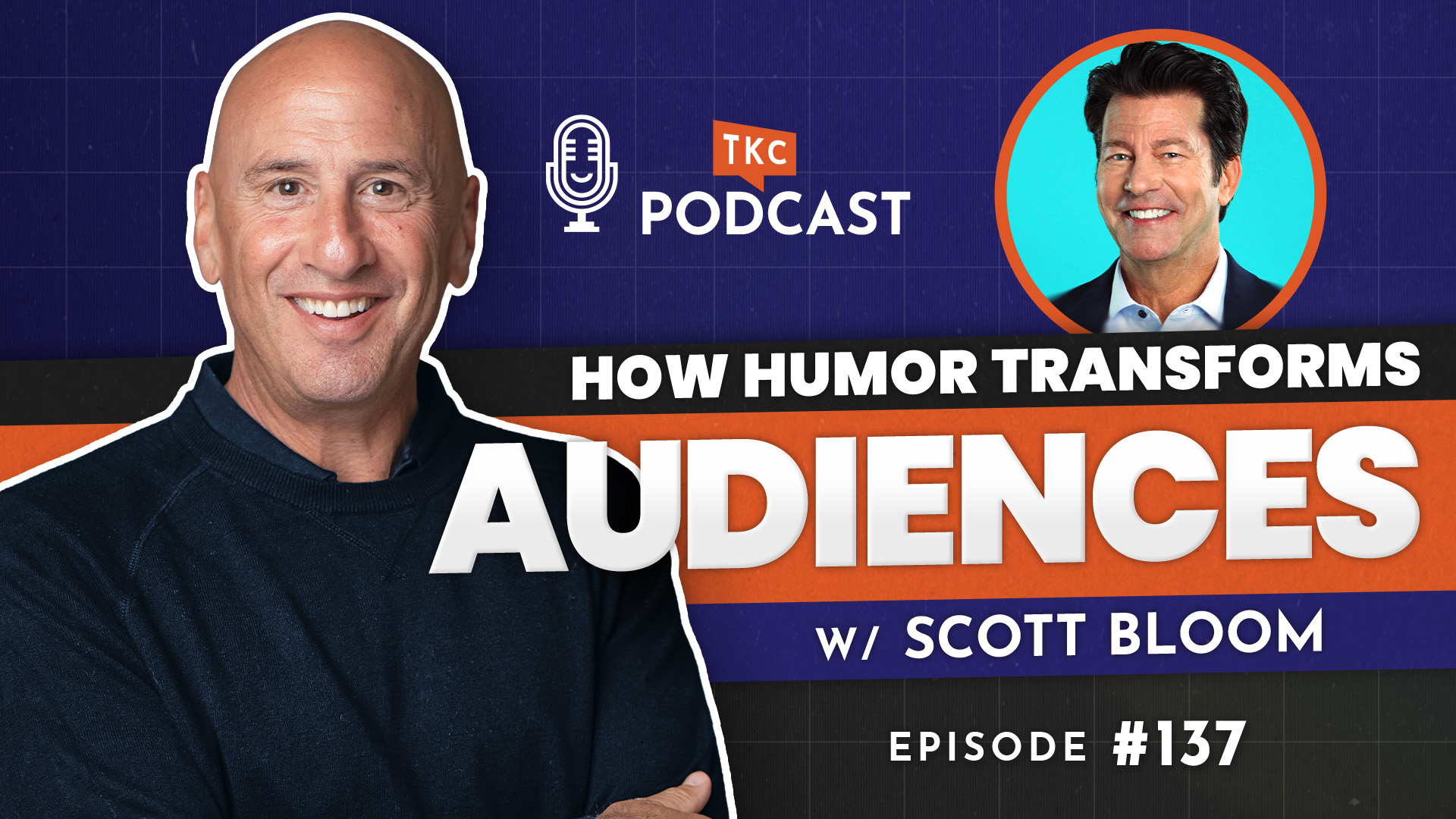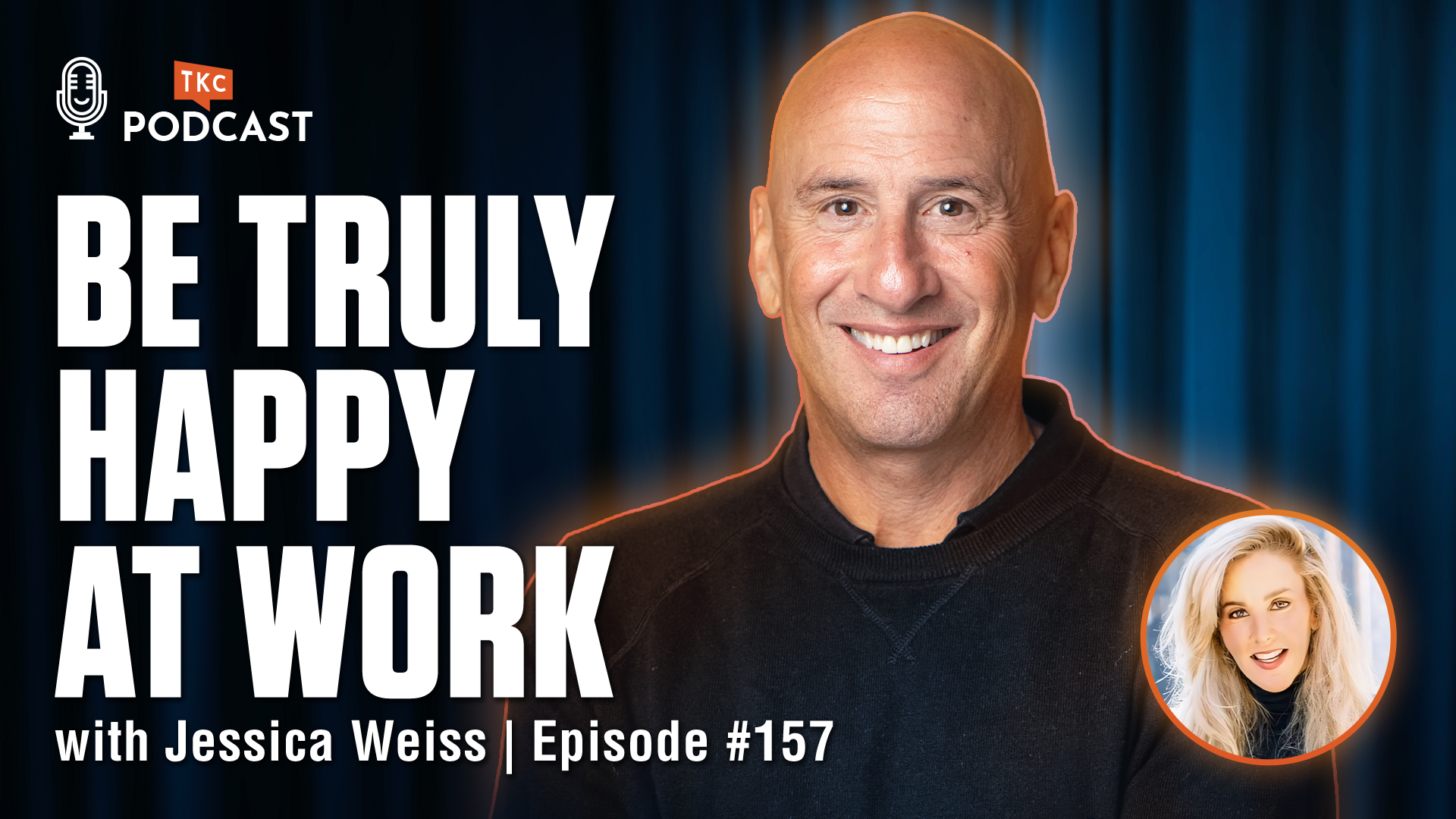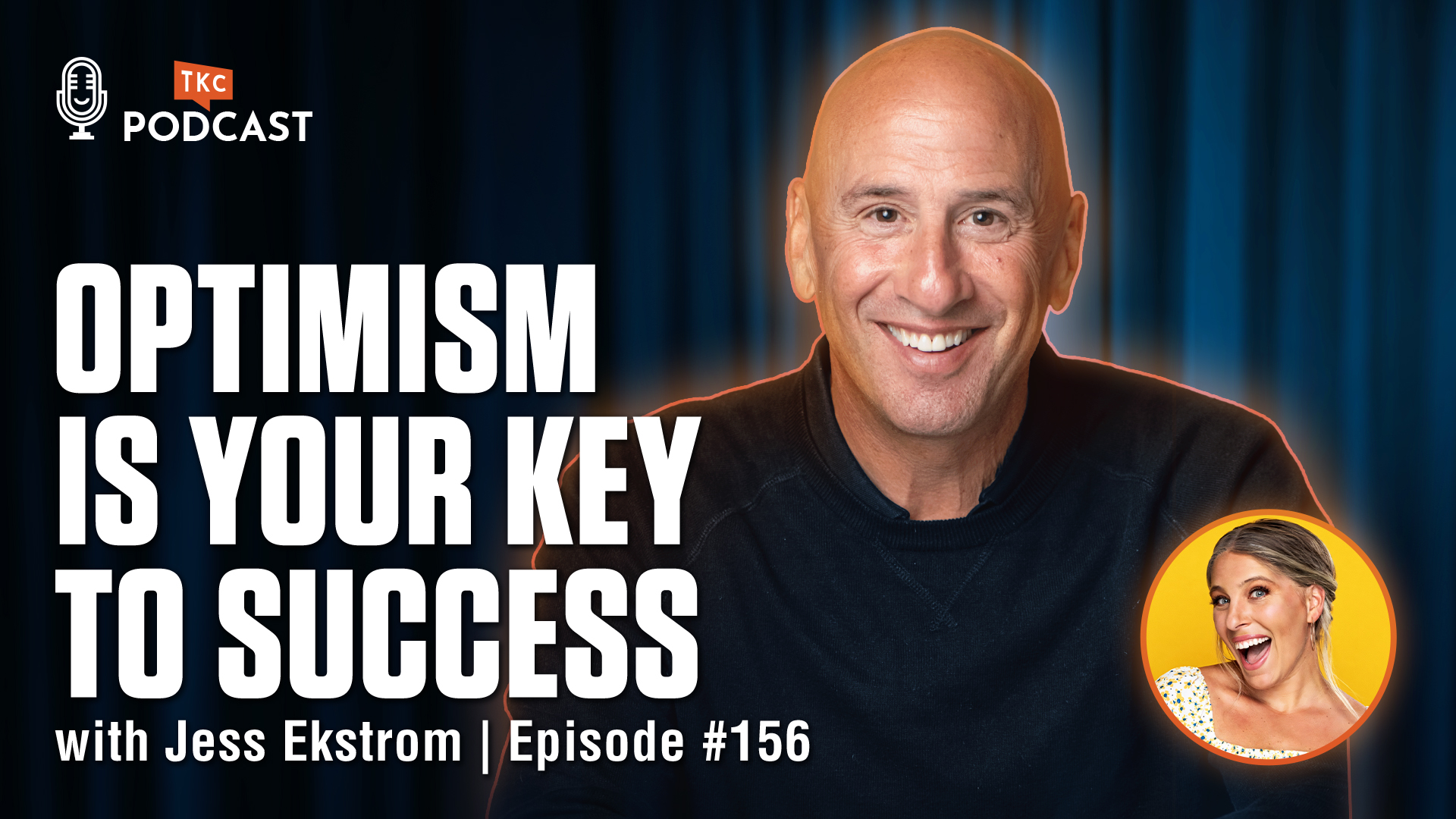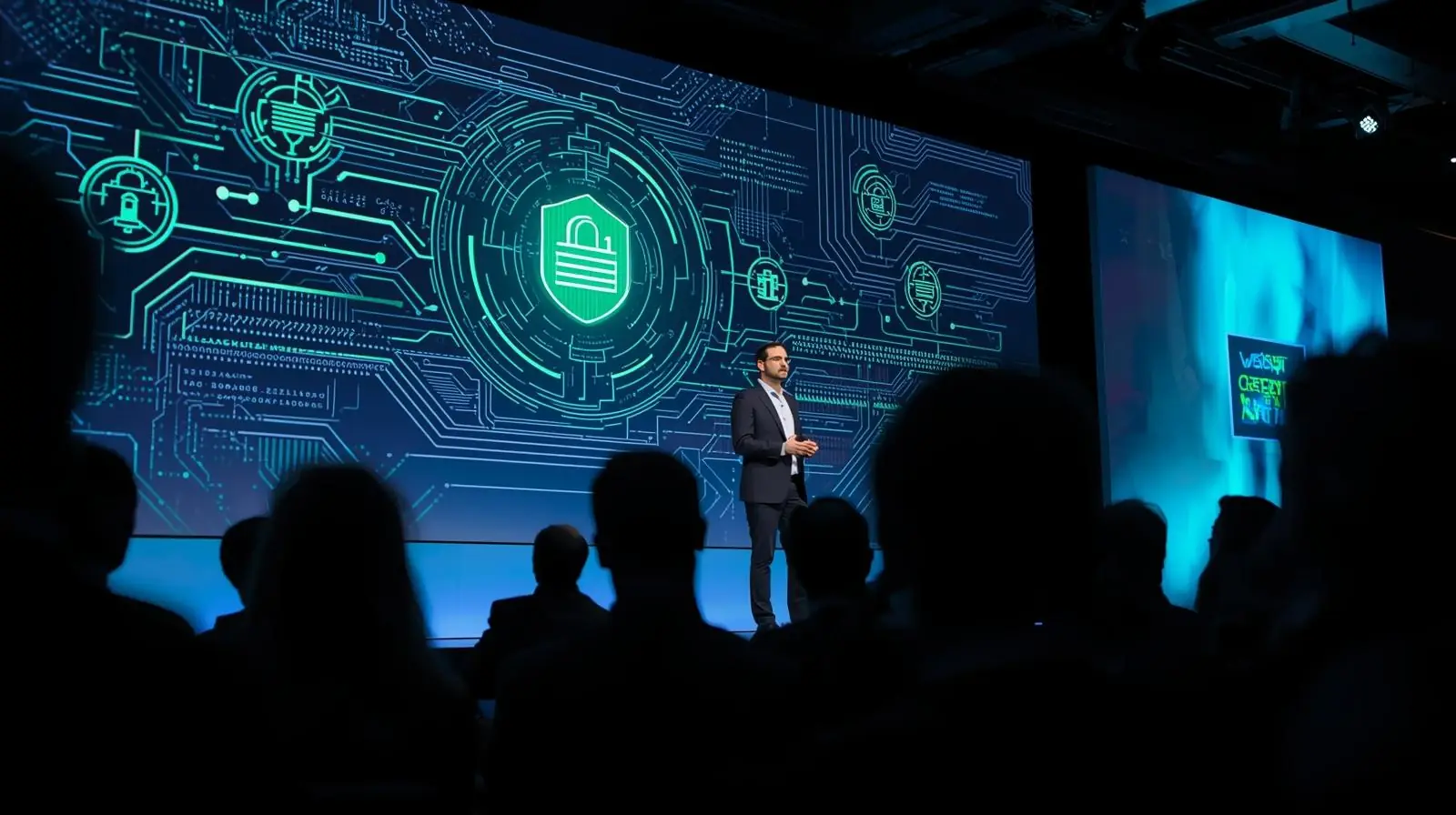
September 18, 2025Audience Engagement Secrets That Take Events From Boring to Brilliant with Scott Bloom
Learn proven audience engagement techniques from comedy keynote speaker Scott Bloom that transform cold corporate rooms into connected experiences.
Furthermore, most corporate events deliver content to their audience, yet the truly memorable ones create genuine connection. Meanwhile, event professionals across industries struggle with the same challenge: how do you transform a room full of strangers into an engaged, energized audience that actually remembers your message weeks later?
Scott Bloom, a veteran comedian turned business keynote speaker and professional emcee, has spent over two decades proving that laughter isn’t just entertainment—it’s a powerful business tool. Additionally, his client roster reads like a Fortune 500 directory: FedEx, Ford, IBM, MetLife, PepsiCo, Pfizer, and Verizon. What sets Scott apart isn’t just his ability to make people laugh; it’s his mastery of audience psychology and his understanding that genuine engagement starts with putting your audience first, not yourself.
This comprehensive guide reveals Scott’s proven strategies for creating authentic audience connections, managing unexpected moments with grace, and transforming any corporate gathering into an experience that attendees genuinely value. Moreover, you’ll discover why the difference between hiring any emcee and hiring the right one can make or break your entire event investment.
? Watch and listen to the podcast episode: YouTube • Spotify • Apple Podcasts • Amazon Music
Why Your Audience Craves Connection Over Content
Most event planners focus obsessively on content delivery, yet audience engagement begins with emotional connection. According to audience engagement keynote speaker Scott Bloom, “The best events don’t just have content for the audience—they bring them in and make them feel connected.” This fundamental shift in perspective changes everything about how you approach event design.
Traditional corporate events often treat attendees as passive recipients of information. However, today’s audiences expect interactive, meaningful experiences that respect their time and intelligence. They want to feel valued, heard, and genuinely engaged rather than lectured at for hours.
Scott’s approach centers on understanding your audience’s emotional state from the moment they enter the room. “Where your attention is—on yourself or your audience—determines everything,” he explains. When event hosts focus on their own performance anxiety or agenda items, audiences sense that disconnect immediately. Conversely, when your attention remains laser-focused on serving your audience’s needs, engagement follows naturally.
The comedy and humorist approach Scott employs isn’t about telling jokes; it’s about reading the room, understanding group dynamics, and creating moments of shared experience that break down barriers between strangers. These connections become the foundation for everything else your event accomplishes.
The Psychology Behind Laughter as Business Language
Laughter serves as the ultimate universal business language, transcending industry jargon, corporate hierarchies, and cultural differences. Specifically, when people laugh together, they experience a neurological bonding effect that psychologists call “social synchronization.” This phenomenon creates trust faster than traditional networking approaches ever could.
Scott Bloom understands this science intuitively. Having transitioned from stand-up comedy stages to corporate boardrooms, he’s witnessed firsthand how humor dismantles professional barriers that typically inhibit authentic communication. “Laughter is the ultimate business language,” Scott notes, emphasizing that appropriate humor doesn’t diminish professionalism—it enhances it.
The key lies in understanding the difference between entertainment for its own sake and strategic humor that serves your audience’s business objectives. Entertainment keynote speakers like Scott craft comedic moments around company culture, industry challenges, and shared professional experiences rather than generic punchlines.
For instance, when hosting events for pharmaceutical companies, Scott develops material specifically about regulatory challenges, clinical trial experiences, and industry-specific scenarios that resonate deeply with that particular audience. This targeted approach ensures that humor enhances rather than distracts from your event’s core messages.
Furthermore, strategic humor serves multiple business functions simultaneously: it increases retention rates for key information, reduces stress levels that often accompany corporate gatherings, and creates positive emotional associations with your brand or message. Research consistently shows that people remember information better when it’s delivered in an emotionally engaging context, making humor a powerful tool for achieving actual business outcomes.
Mastering the Art of Seamless Event Flow
Professional moderators, hosts, and emcees understand that seamless event flow requires invisible orchestration. Your audience should never feel the mechanics of transition management, technical coordination, or schedule adjustments. Instead, they should experience a smooth, purposeful journey from opening remarks to closing inspiration.
Scott Bloom’s reputation for flawless event management stems from his understanding that an emcee’s primary job isn’t performing—it’s serving. “The role of an MC in events goes far beyond just introducing speakers,” he explains. “It’s about maintaining energy, managing unexpected moments, and ensuring every attendee feels engaged throughout the entire experience.”
Effective event flow begins with thorough preparation that goes well beyond reviewing speaker introductions. Scott studies each company’s culture, current challenges, recent wins, and industry context. This preparation allows him to weave relevant references throughout the event, creating continuity that makes individual presentations feel like chapters in a cohesive story rather than disconnected segments.
Technical rehearsals become crucial for maintaining this seamless experience. However, even the best preparation can’t prevent every unexpected moment. Consequently, the most valuable emcees excel at improvisation that serves the audience’s experience rather than showcasing their own cleverness.
When technical difficulties arise, schedule changes occur, or speakers run long, skilled emcees transform these potentially awkward moments into opportunities for additional audience connection. They might acknowledge the situation with appropriate humor, facilitate impromptu networking moments, or create engaging content that maintains energy levels while issues resolve behind the scenes.
Turning Unexpected Moments Into Corporate Gold
Every live event includes unexpected moments—technical glitches, speaker emergencies, schedule disruptions, or audience reactions that deviate from your carefully planned timeline. Nevertheless, these curveballs often become the most memorable parts of an event when handled skillfully.
Scott Bloom has built his reputation on transforming unexpected situations into what he calls “corporate gold”—moments that actually enhance your event’s value rather than detracting from it. “You have to be quick on your feet, turning any unexpected moment on stage into something valuable for the audience,” Scott notes.
This skill requires genuine presence and audience awareness rather than scripted responses. When a keynote speaker’s flight gets delayed, for example, a skilled emcee might facilitate an impromptu discussion among attendees about the speaker’s topic, creating valuable peer-to-peer learning opportunities that weren’t in your original agenda.
Similarly, when technical presentations encounter equipment failures, experienced emcees can guide speakers through alternative delivery methods while maintaining audience engagement. They might encourage speaker-audience Q&A sessions, facilitate small group discussions, or create interactive moments that actually improve upon the original presentation format.
The key to mastering unexpected moments lies in maintaining your focus on audience value rather than personal embarrassment or frustration. Audiences appreciate authenticity and grace under pressure far more than perfect execution of a mediocre plan. Moreover, when they witness skilled problem-solving in real time, they often develop greater confidence in your entire organization’s capabilities.
Building Authentic Connections Through Strategic Audience Focus
Authentic audience engagement requires shifting your entire mindset from “How do I look?” to “How can I serve?” This fundamental reorientation changes every aspect of your event planning and execution. Additionally, it determines whether your audience leaves feeling genuinely valued or simply endured another corporate obligation.
Scott Bloom emphasizes that “where your attention is—on yourself or your audience—determines everything about the connection you create.” When event hosts worry primarily about their own performance, appearance, or potential mistakes, audiences sense that self-focus immediately. Conversely, when your attention remains consistently directed toward serving your audience’s needs, interests, and comfort, engagement flows naturally.
This audience-first approach manifests in countless small but significant ways throughout your event experience. It influences how you craft opening remarks, structure networking breaks, design presentation formats, and even arrange physical spaces. For instance, rather than positioning speakers behind imposing podiums that create barriers, audience-focused events might use more intimate setups that encourage interaction and connection.
Employee engagement improves dramatically when corporate events demonstrate genuine care for attendee experience rather than simply checking boxes on mandatory training requirements. Scott’s approach involves studying each audience beforehand—understanding their current challenges, recent wins, industry pressures, and professional goals.
This preparation enables personalized connections that make large corporate gatherings feel surprisingly intimate. When an emcee references specific company achievements, acknowledges recent challenges with appropriate sensitivity, or incorporates industry-relevant humor, attendees feel seen and valued rather than anonymous.
The Strategic Value of Professional Event Partnership
Hiring the right emcee represents far more than filling a line item in your event budget—it’s an investment in strategic partnership that can transform your entire gathering’s effectiveness. Unfortunately, many organizations treat emcee selection as an afterthought, focusing primarily on cost rather than value creation.
Scott Bloom positions himself as an event partner rather than a vendor, understanding that his success depends entirely on your event’s success. “The value of an MC in events extends far beyond introductions—we become partners in creating experiences that achieve your specific business objectives,” he explains.
Professional event partners bring expertise that extends well beyond stage presence. They understand audience psychology, group dynamics, energy management, and crisis response in ways that inexperienced hosts simply cannot match. Furthermore, they can adapt to unexpected situations, read room energy accurately, and make real-time adjustments that preserve or enhance your event’s effectiveness.
The financial impact of this partnership approach becomes clear when you consider the total investment represented by your corporate event. Between venue costs, catering expenses, speaker fees, travel budgets, and most importantly, the opportunity cost of having your entire team away from regular responsibilities, most corporate events represent substantial investments that deserve professional execution.
When Scott works with clients, he invests time understanding their corporate culture, current initiatives, key personnel, and specific objectives for each gathering. This preparation enables him to reinforce your messages consistently throughout the event while maintaining the engaging, professional atmosphere that keeps attendees actively participating rather than mentally checking out.
Handling Audience Reactions With Professional Grace
Audience reactions during corporate events rarely follow your carefully planned script. Moreover, managing these spontaneous moments skillfully often determines whether your event feels authentic and engaging or stilted and disconnected from your audience’s actual experience.
Scott Bloom’s decades of experience performing for live audiences have taught him that “dealing with your audience’s reactions requires trust and belief in your ability to serve them, regardless of what happens.” This confidence comes from extensive preparation combined with genuine focus on audience value rather than personal ego protection.
Different audiences express engagement in various ways. Some groups respond with vocal enthusiasm, while others demonstrate appreciation through attentive silence. Technical audiences might interrupt with detailed questions, while sales teams could respond with competitive energy and playful banter. Understanding these dynamics helps you interpret reactions accurately rather than misreading audience engagement levels.
When audiences seem disengaged, skilled event hosts recognize this as valuable feedback rather than personal failure. They might adjust their approach, invite participation through different methods, or acknowledge the energy directly while working to re-establish connection. Scott notes that “maintaining audience engagement means staying present with what’s actually happening rather than rigidly following your original plan.”
Controversial topics or unexpected reactions require particular finesse. Rather than avoiding these moments, experienced emcees can guide discussions that acknowledge different perspectives while maintaining a professional atmosphere. They understand when to inject appropriate humor, when to create space for reflection, and when to redirect energy toward more productive directions.
Creating Memorable Experiences That Drive Business Results
The ultimate measure of event success isn’t entertainment value or even audience satisfaction—it’s whether your gathering achieves specific business objectives while creating positive associations with your organization. Consequently, the most effective corporate events balance engagement with measurable outcomes that justify your investment.
Scott Bloom’s approach integrates media savvy with business acumen, understanding that memorable moments must serve strategic purposes rather than existing purely for entertainment. His corporate comedy routines are built around company culture, industry challenges, and business objectives rather than generic humor that could apply to any audience.
This strategic approach creates multiple layers of value. Attendees enjoy the experience, which increases their receptivity to key messages. They develop positive emotional associations with your organization, which improves retention and engagement long after the event ends. Additionally, they’re more likely to share their positive experience with colleagues, extending your event’s impact beyond the original audience.
Measuring these results requires thinking beyond immediate feedback surveys to longer-term indicators of engagement, retention, and behavior change. Organizations that work with Scott consistently report improved team morale, enhanced company culture, and stronger internal communication as lasting benefits from well-executed corporate events.
Furthermore, when employees feel genuinely valued through thoughtful event experiences, they become more engaged ambassadors for your organization’s mission and values. This authentic enthusiasm translates into improved performance, reduced turnover, and stronger attraction of top talent who want to work for organizations that demonstrate genuine care for their people.
The Long-Term Impact of Audience-First Event Strategy
Implementing an audience-first approach to corporate events creates compounding benefits that extend far beyond individual gatherings. Organizations that consistently prioritize genuine audience engagement develop reputations as employers and partners who truly value people, which strengthens every aspect of their business relationships.
Scott Bloom has witnessed this transformation repeatedly among his long-term clients. Companies that initially hired him for single events often develop ongoing relationships because they recognize the strategic value of professional event partnerships. “Many of my clients continue bringing me back year after year because they understand that investing in authentic audience engagement pays dividends in ways that traditional corporate communications simply cannot match,” he observes.
This long-term perspective influences how you approach event planning at every level. Instead of treating each gathering as an isolated obligation, you begin viewing your corporate events as opportunities to strengthen relationships, reinforce cultural values, and create positive momentum that supports broader business objectives.
The audience-first mindset also transforms how your team approaches internal communications, client relationships, and industry partnerships. When you consistently prioritize serving others’ needs over promoting your own agenda, people notice. They remember organizations that made them feel valued, heard, and genuinely appreciated.
Ultimately, the goal isn’t just successful events—it’s building an organizational culture that attracts and retains exceptional people who want to contribute to something meaningful. Corporate gatherings become vehicles for demonstrating and reinforcing these values in ways that create lasting impact on everyone involved.
Therefore, when you invest in professional expertise that prioritizes authentic audience engagement, you’re not just improving individual events—you’re strengthening your organization’s capacity for creating genuine connections that drive sustained business success. The laughter, energy, and positive memories that result become valuable assets that continue generating returns long after the event concludes.
Transform Your Next Corporate Event Into an Unforgettable Experience
Ready to discover how audience-first engagement strategies can transform your next corporate gathering? The difference between ordinary events and extraordinary experiences often comes down to one crucial decision: choosing speakers and emcees who understand that genuine connection drives lasting business results.
Book Scott Bloom to bring professional comedy, seamless event management, and authentic audience engagement to your mainstage.
Explore our complete roster of keynote speakers who specialize in creating connection-driven corporate experiences.
Schedule a 15-minute discovery call to discuss your specific event objectives and audience engagement goals.
Don’t leave your next corporate event’s success to chance. Invest in professional expertise that transforms ordinary gatherings into memorable experiences that drive real business results.
Discover More Insights
Get in TouchContact US
Fill out the form so we can best understand your needs.
A representative from The Keynote Curators will reach out to you.








